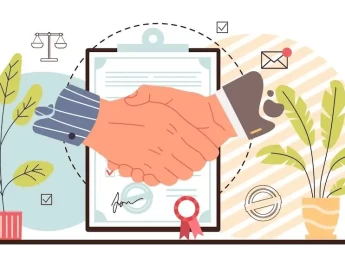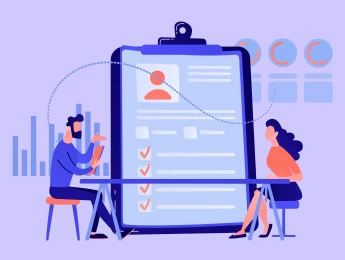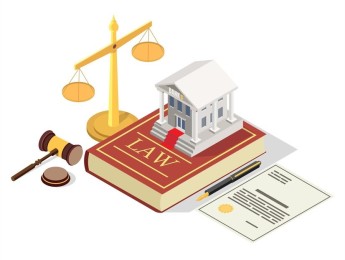Negotiations are essential for growth and progression both inside and outside your business. Your relationships with your employees, suppliers, partners, and stakeholders will determine your future project plans and may help shape your business. Understanding the basics of negotiation is important to creating a mutually beneficial relationship with all parties. Sometimes, this requires you to compromise to achieve your long-term goals.
Occasionally, you and suppliers, or stakeholders may not agree with your company's direction, leading to awkwardness and arguments if not managed carefully.
Understanding each party’s motivations and determining a compromise that works for everyone is essential. Resolving disputes calmly and productively will improve your relationships with external parties and give you a good reputation when agreeing on other contracts in the future.
The ability to negotiate effectively and resolve disputes to benefit all parties will require careful consideration of each person's needs and motivations for development. Effective communication skills, body language, and the ability to paint a picture of your intentions will help both parties, including stakeholders, understand each other and achieve a positive resolution.
Upon completion of this course, participants will be able to:
- Understand how SMART objectives can aid negotiations.
- Develop your communication skills to build rapport and understanding between suppliers, partners and stakeholders.
- Create a clear project map to understand your goals.
- Highlight areas where compromise is required to achieve the best outcome.
- Handle disputes and confrontations professionally to gain a positive outcome.
- Explain your action plan in detail to be wholly transparent.
- Provide insight into each company's benefits in supporting others' goals.
- Demonstrate strength and professionalism in a negotiation scenario.
- Analyse the reasons that disputes may occur.
- Understand tactics for effective negotiation.
- Develop long-term, mutually beneficial outcomes to support business growth.
This course is designed for anyone within an organisation tasked with negotiating budgets and project plans for future development. It would be most beneficial for:
- Business Owners
- Departmental Leads
- Account Managers
- Financial Managers
- Project Planners
- Supply Chain Managers
- Operations Managers
- Bid Writers
- Executives
- Directors
This course uses various adult learning techniques to aid full understanding and comprehension. Participants will review real-life negotiation meetings and assess the research and background information that helped to overcome differences and barriers.
They will work in groups to discuss their business and the types of negotiations required and gain insight into areas that may cause disputes. They will then conduct role-playing activities and scenarios using the practices and negotiation tools provided to come to a mutually beneficial resolution, utilising their learned communication tactics to avoid disputes.
Day 5 of each course is reserved for a Q&A session, which may occur off-site. For 10-day courses, this also applies to day 10
Section 1: The Basics of Good Negotiation
- Understanding the dos and don’ts of effective negotiation.
- How disputes occur, and how to recognise the signs.
- The impacts of disputes on your business.
- BATNA - the best alternative to a negotiated agreement.
- Using SMART objectives to help display your aims.
- The 4 stages of negotiation - preparing, opening, bargaining, and closure.
Section 2: The Best Negotiation Tools for Your Arsenal
- Information gathering and data analysis.
- Supporting your points with evidence.
- Developing a draft proposal.
- Preempting disputes and creating a viable alternative.
- Creating an effective discussion.
- Where are you willing to negotiate?
- Leaving room for change.
- How does your proposal benefit the other parties involved?
Section 3: Negotiation Tactics & Tools
- Negotiating around a difference of opinion.
- The 3 versions of a negotiator - red, blue, and purple.
- Understanding body language.
- Non-verbal communication and how to negotiate change.
- Tactics to achieve your end goal.
Section 4: Dealing with Disagreements Professionally
- Team negotiations and working with group discussions.
- Mediation techniques and ensuring a positive outcome.
- Meeting in the middle and developing a beneficial outcome for all.
- Interest focus vs. position focus.
- Proposal and persuasion.
Section 5: Stakeholder Identification and Management
- Identifying and categorising stakeholders based on their roles and interests.
- Understanding stakeholder expectations, commitment levels, and motivations.
- Defining the management role in fostering positive stakeholder relationships.
- Prioritising stakeholder requirements and aligning them with business objectives.
- Managing stakeholder resistance and gaining buy-in for project initiatives.
Section 6: Applying Your Communication Techniques
- Effective negotiation examples.
- Your performance analysis and fact sharing.
- Review your negotiations and make continuous improvements.
- Action planning and role-playing.
- Innovative solutions to disputes.
Upon successful completion of this training course, delegates will be awarded a Holistique Training Certificate of Completion. For those who attend and complete the online training course, a Holistique Training e-Certificate will be provided.
Holistique Training Certificates are accredited by the British Assessment Council (BAC) and The CPD Certification Service (CPD), and are certified under ISO 9001, ISO 21001, and ISO 29993 standards.
CPD credits for this course are granted by our Certificates and will be reflected on the Holistique Training Certificate of Completion. In accordance with the standards of The CPD Certification Service, one CPD credit is awarded per hour of course attendance. A maximum of 50 CPD credits can be claimed for any single course we currently offer.
- Course Code PM2-116
- Course Format Classroom, Online,
- Duration 5 days














